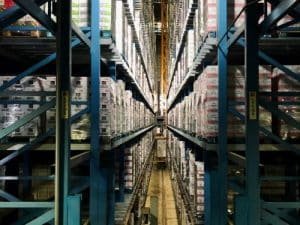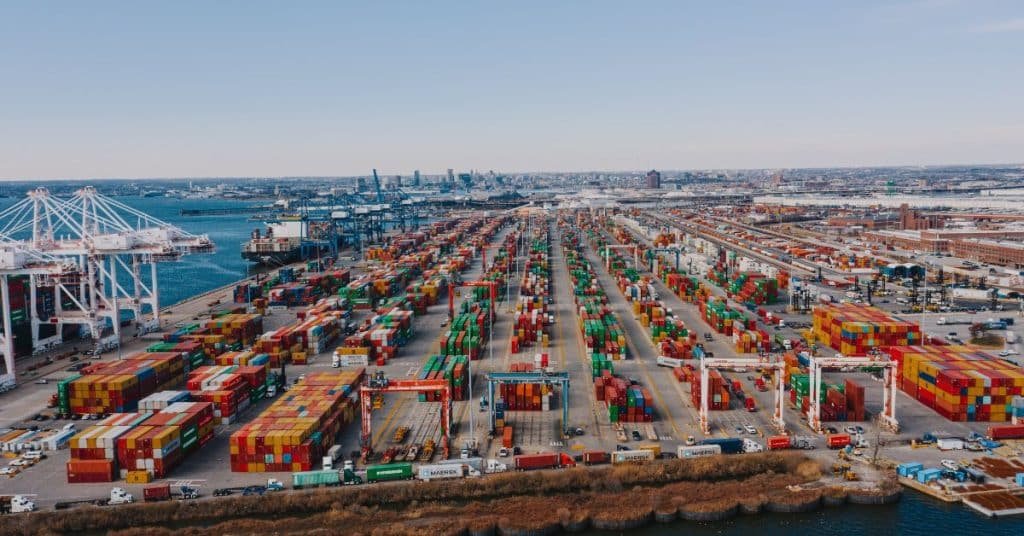From selecting and training the right personnel to manage the complexity of the supply chain to ensuring job security and managing team dynamics, HR is at the heart of operational success in the logistics sector.
In this article, we will look at how and why these professionals play a key role in organising and prospering logistics companies.
How can HR help companies operating in the logistics sector?
Investing in human resources training today is indispensable to ensure the success of logistics operators in the outsourcing context. Skills must range from detailed knowledge of the customer’s business to the ability to formulate strategic proposals.
For logistics service providers (3PLs), it is crucial to have an intimate understanding of the needs and operational dynamics of companies. This requires sector-specific skills and knowledge in each individual business. Logistics service providers must invest in the training of their human resources to ensure that they are able to analyse and fully understand the customer’s business.
Staff training must be geared towards developing strategic capabilities. Interlocutors in logistics providers must be able to formulate proposals that go beyond the mere provision of basic services.
These proposals should aim at:
- Optimising the structure of customer transport activities
- Improving operational efficiency
- Contributing to the achievement of defined objectives
Training should also cover new emerging technologies and best practices in logistics. The use of advanced information management and monitoring systems, for example, can greatly improve operational efficiency and supply chain visibility.
Human resources management should focus on the development of communication and negotiation skills. Stakeholders in companies must be able to effectively communicate the benefits of outsourcing and negotiate contracts that are beneficial for both the customer and the logistics service provider.
Supply Chain Management Reform
The reforms of recent years highlight the need for a strategic leadership figure who plays a key role in maintaining cohesive relationships between divisions, departments and subsidiaries abroad. This figure should be able to lead projects that aim to overcome barriers between different aspects of the organisation and optimise the offshoring process.
The supply chain often involves several divisions and departments within a company. A dedicated leadership figure can coordinate these entities, ensuring effective communication and promoting an integrated view of the supply chain. This helps to avoid information silos and maximise overall efficiency.
In the context of branches abroad, international relations management is crucial. The person in charge should have an in-depth understanding of the cultural dynamics and specific needs of the sites abroad. This serves to facilitate relocation by minimising the challenges related to cultural and logistical differences.
The rapid relocation of production and distribution sites requires strategic leadership. The designated person should be able to analyse the overall situation, identify opportunities for improvement and lead the implementation of effective solutions. Relocation often involves the management of globally distributed teams. A good leader should have skills in managing multi-local teams, understand the challenges associated with geographic diversity and lead the harmonisation of efforts to achieve common goals.
A competent person in supply chain management should be able to respond to specific business needs to quickly respond to unforeseen challenges, adapt easily to market trends and design resilient strategies in an environment of rapid change.
The importance of HR in finding ideal candidates for the logistics sector
Human resources can develop targeted recruitment strategies to attract candidates with specific logistics skills. These professionals work to ensure that candidates are in tune with the company culture. They can use targeted assessment methodologies to ensure that candidates possess the technical and behavioural skills required to excel in the logistics industry. They design and manage effective selection processes. This may include structured interviews, practice tests and behavioural assessments to ensure that only the most qualified candidates reach the final stages of the recruitment process.
In this market sector, collaboration and precision are elements that are impossible to do without. This makes it essential to find professionals who can adapt to the culture of the business to improve the overall efficiency of the team.
After recruitment, HR can take care of the ongoing training and development of employees in the logistics sector. This ensures that staff maintain and enhance over time the skills needed to meet the evolving challenges in the industry.
The characteristics of the HR manager of the future for the logistics sector
The HR manager of the future in the logistics industry must be a strategic, competency-oriented figure, ready to face the rapid changes in the global logistics landscape. The ability to understand and manage industry-specific challenges is crucial for the long-term success of the company.
He/she must possess an in-depth understanding of the dynamics and challenges specific to the logistics sector. This knowledge is essential to identify the skills required and to ensure human resources management aligned with business objectives. He/she must be proficient in the use of emerging technologies (supply chain management software, traceability systems and data analysis) that make it possible to make the most of technological innovations to optimise human resource management operations.
Logistics is often subject to seasonal fluctuations and variations in demand. A proactive HR manager must be able to anticipate staffing needs, ensuring that the company has the right amount of human resources at all times. Given the rapid evolution of the logistics industry, the HR manager of the future must be a leader in managing change. This may include implementing new technologies, redefining operational processes and adapting to market needs.
It will be increasingly important to recruit candidates with knowledge of customs regulations, experience in managing automated warehouses and the ability to manage the complexity of global supply chains.
In order to make sure that the team is well aligned to the needs of the business and that all employees work in synergy towards the achievement of common goals, the HR manager will have to leverage three requirements that will become indispensable over time (they already are today and make a big difference in the long run).
Being aware of the context in which the company operates
Before embarking on any logistics renewal initiative, it is essential to have a thorough understanding of business processes, without which it would be difficult to identify areas requiring improvement and the implementation of effective solutions.
Awareness of the business environment includes an assessment of available resources. This includes not only financial resources, but also human, technological and infrastructural resources. With a clear understanding of the available resources, it is possible to realistically plan logistics renewal, identifying the opportunities that can be exploited and the challenges that need to be addressed.
Awareness of the context enables a thorough assessment of risks and opportunities. The business environment is subject to various risks, such as regulatory changes, economic instability or unforeseen events. At the same time, it presents opportunities that can be exploited for business progress. Awareness of the presence of these elements is essential to develop renewal strategies that manage risks and capture opportunities.

Ability to design, develop and consolidate the logistics system
Careful design of the logistics system optimises operations, improves supply chain visibility and reduces waste. It also includes the definition of workflows and operational processes. This part of the process ensures that activities are carried out smoothly and consistently, reducing delays and errors.
If the logistics system is well designed, it can adapt to changing market conditions and scale efficiently in response to changes in demand or new business opportunities. This capability is crucial to remain competitive in a dynamic business environment.
Construction and operation require careful planning of resources, including storage space, transport fleets, personnel and technology. Well thought-out planning allows these resources to be optimally allocated to maximise efficiency and reduce operating costs.
A well-designed logistics system is able to effectively meet customers’ needs and expectations while also managing to consolidate its market presence over time.
Ability to plan, propose and negotiate with customers
Being aware of customer challenges is essential to offer targeted solutions. This awareness stems from an in-depth analys of their needs: an extensive understanding of the problems they are facing allows you to offer solutions that respond directly to their needs. The ability to customise logistics solutions to the customer’s specific needs is crucial.
Full awareness of internal challenges is equally important. This implies collaboration between internal departments to ensure a harmonious workflow. Furthermore, open and continuous communication with business partners and other actors involved in the supply chain makes all the difference.
Another key element is to be proactive in identifying potential customer challenges in order to be ready to propose solutions before they become problems. This attitude allows one to face challenges with a positive mindset that instils and consolidates a bond of trust with the customer.
If you are looking for a strategic partner to optimise human resources management in the logistics sector, the Kilpatrick team is here for you. Through targeted strategies and an in-depth understanding of the industry’s needs, we identify and select candidates with the ideal skills to grow your business.
The workforce is the engine that drives a company’s success; let’s make it work at its best and do it together. Contact us and find out how we can work together.

